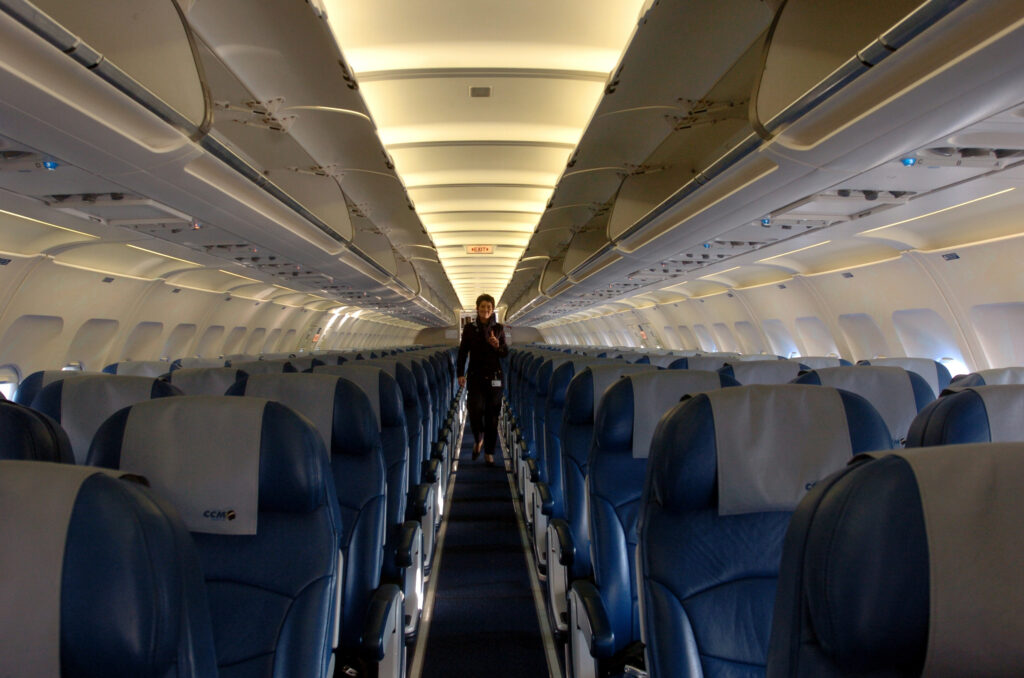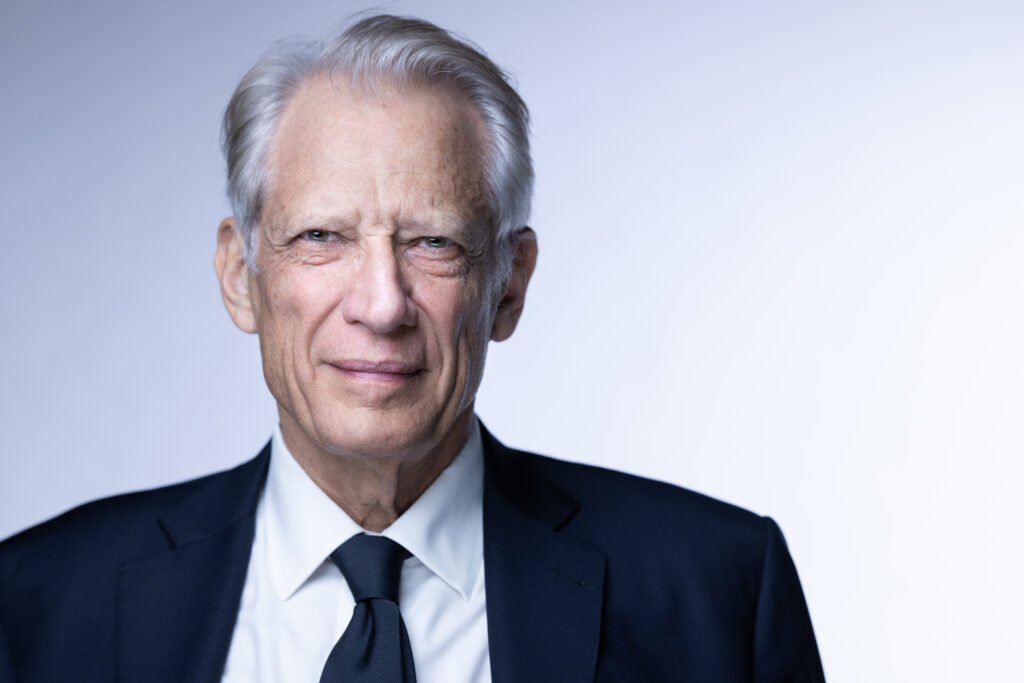Italie: l’AS Rome bondit à la 2e place avant la réception de Lille
L’AS Rome, prochain adversaire de Lille en Ligue Europa, s’est emparée de la deuxième place du Championnat d’Italie après sa victoire face à Vérone (2-0) dimanche pour le compte de la cinquième journée de Serie A.La Roma s’est imposée au Stade olympique grâce à des buts d’Artem Dovbyk (7e) et de Matias Soulé (79e) pour enfoncer encore un peu plus l’Hellas Vérone qui n’a toujours pas gagné cette saison (16e, 3 pts).L’équipe de Gian Piero Gasperini totalise 12 points, comme le leader et champion en titre Naples qui affronte l’AC Milan (4e, 9 pts) en début de soirée (20h45) à San Siro.La Roma a remporté quatre de ses cinq premiers matches de championnat, en concédant un seul but, celui de sa seule défaite de la saison à domicile contre le Torino (1-0).”Voir la Roma à la 2e place du championnat est bien sûr quelque chose d’appréciable, mais nous sommes encore dans une phase d’évaluation de nos forces, le championnat est encore très long et nous devons encore progresser et nous améliorer”, a analysé Gasperini.”Ce match a montré aussi que certains joueurs avaient éprouvé du mal au bout d’une semaine avec trois matches”, a regretté l’ancien entraîneur de l’Atalanta, aux commandes de la Roma depuis juillet.Les Giallorossi ont débuté leur campagne en Ligue Europa par une victoire 2 à 1 sur le terrain de Nice. Ils reçoivent Lille jeudi (18h45) dans le cadre de la deuxième journée de la phase de ligue de la C3.
Quelques milliers de manifestants en France en faveur du climat et de la justice sociale
Sept cents personnes à Lyon, 300 à Strasbourg, plusieurs centaines à Paris… Dans toute la France, quelques milliers de personnes ont défilé dimanche à l’appel notamment d’associations de défense de l’environnement, au nom du climat ou de la justice sociale.”Justice sociale et climatique, même combat”, “on veut une mégabassine de droits”, “manger les riches”… A Strasbourg, Paris ou Bordeaux, les slogans étaient aussi divers que les revendications des différentes associations ayant appelé à manifester, Greenpeace, Alternatiba, Action Justice Climat, Attac…Les organisateurs ont annoncé 70 rassemblements dans toute la France “pour affirmer qu’un autre avenir est possible face aux crises écologique, sociale et démocratique”. Ce, à l’approche notamment de la conférence de Belém de 2025 sur les changements climatiques, ou COP 30, organisée par les Nations unies.Dans le cortège parisien, où l’AFP a dénombré environ 700 manifestants vers 15h00, Maya a “l’impression qu’il n’y a pas grand monde”. La retraitée qui n’a pas souhaité donner son identité se demande “s’il y a encore une conscience, un esprit critique sur notre économie et ce qui se passe autour de nous”.La diversité des revendications enthousiasme néanmoins son amie Béa, qui y voit “un vrai projet de société” alternatif. Plusieurs partis politiques de gauche, France insoumise, Parti socialiste, Place publique ou écologistes étaient représentés.A Strasbourg, Louve Laval, membre de Greenpeace de 23 ans, entendait marquer les 10 ans de l’Accord de Paris sur le climat, et dénonce “l’inaction des Etats en matière de droits humains, d’environnement, de climat”.A Bordeaux, une soixantaine de personnes se sont élancées, derrière un groupe de percussions (batucada) qui rythmait la marche.”Voir aussi peu de monde et surtout peu de jeunes, c’est attristant”, a regretté Dania Benazet, retraitée du social de 76 ans et “écolo depuis les années 70″.”On ne veut pas entendre” parler que des propos de “Trump et ses acolytes, l’extrême droite”, poursuit-elle. “Il faut que les politiques réconcilient les classes populaires, les ruraux avec l’écologie et avec des discours plus positifs sinon oui, ce sera trop tard”.A Nantes, les manifestants s’étaient élancés peu avant midi en musique et derrière des banderoles marquées “Justice climatique et sociale, même combat” et “Climat, justice, liberté, ils détruisent, on s’organise”. A Lyon, le rassemblement organisé dans la matinée a réuni 700 personnes, selon la préfecture.kal-pau-mla-ld-cda/uh/as
Sur TikTok ou Instagram, pilotes et personnel de bord dévoilent les coulisses des vols
Pourquoi faut-il remonter son cache-hublot à l’atterrissage? A quoi ressemble un décollage vu du cockpit? Sur TikTok ou Instagram, stewards, hôtesses de l’air et pilotes montrent les coulisses des vols et des escales dans des vidéos parfois filmées à bord et attirant des millions de vues.”Fly with Manon”, “Matpilote”, “Clara l’hôtesse en jet”, “Mina dans les airs” ou “Mathieu le steward” partagent leur quotidien, détaillent les grandes étapes de leur planning mensuel et répondent à des questions récurrentes sur le contenu de leur valise ou la nécessité ou non d’un visa à chaque escale…”Bienvenue dans le cockpit du Boeing 737, aujourd’hui nous allons atterrir piste 31″, annonce “Matpilote” dans une séquence filmée juste avant son arrivée à Marseille.Entre la désactivation du pilotage automatique, des explications sur la numérotation des pistes et sur ses manœuvres, il montre à ses plus de 163.000 abonnés les étapes cruciales ponctuant les derniers kilomètres de son itinéraire.Une approche didactique revendiquée par le pilote de ligne de 30 ans aux 2.800 heures de vol, qui a décidé de partager en images son quotidien professionnel après le succès inattendu, pendant sa formation, de ses premières vidéos YouTube filmées à bord de petits avions, destinées à sa famille.”L’idée, c’est d’apporter de la connaissance sur une réalité qui fascine le public et lui fait peur en même temps”, explique-t-il, convaincu que ses vidéos rassurent en montrant que le pilotage d’un avion est “rationnel, maîtrisé, un peu comme la conduite d’une voiture”.Mathieu Allouch, alias “Mathieu le steward”, raconte, lui, à ses plus de 235.000 abonnés le quotidien des hôtesses et stewards dans des sketchs, des vidéos pédagogiques ou d’escales à l’étranger.Il reçoit aussi “tous les jours” des questions sur la sécurité des vols.”Les gens ont peur des turbulences, donc je leur explique qu’elles sont surprenantes mais pas dangereuses pour l’avion, ni pour les passagers tant qu’ils ont attaché leur ceinture”, raconte le trentenaire, ancien animateur radio et TV.- Une image contrôlée -S’il arrive souvent aux deux vidéastes d’être reconnus sur terre par des collègues ou des passagers, ils redoublent de précautions pour préserver l’anonymat de leur compagnie aérienne. Mathieu Allouch enfile un faux costume de steward pour ses tournages, jamais réalisés à bord. Son employeur connaît l’existence de ses vidéos, mais il préfère le garder secret pour “garder une certaine liberté” dans son contenu, estimant qu’il représente “sa corporation en général”.Pour “Matpilote”, qui s’assure de flouter l’immatriculation de son appareil et ne souhaite pas divulguer son vrai nom, ne “pas associer son image à celle de la compagnie” est un prérequis pour pouvoir partager son contenu filmé en vol.Les pratiques varient selon les compagnies, certaines interdisant les prises de vue des pilotes dans l’avion, quand d’autres peuvent l’autoriser à condition d’une demande préalable, pointe le Syndicat national des pilotes de ligne (SNPL).”Très favorable” à ce que des pilotes expliquent leur métier, le SNPL juge toutefois préférable qu’ils se filment hors des avions pour “des raisons de sécurité”: risque de distraction aux commandes, de divulgation d’informations sensibles du cockpit…De son côté, le Syndicat national du personnel navigant commercial (SNPNC) rappelle qu’à bord, l’image appartient “en grande partie à l’entreprise”.En conséquence, s’y filmer en uniforme pour une diffusion publique “nécessite en principe l’accord de la compagnie” au risque de sanctions disciplinaires – même si, en pratique, les compagnies peuvent “tolérer” des publications qui les valorisent. Voire les mettre en avant sur leur propre compte TikTok, comme l’a fait Air Caraïbes avec une vidéo de “Fly with Manon”, une salariée à l’uniforme identifiable sur son profil.Tout en défendant “la liberté d’expression” des navigants, le syndicat juge que la priorité à bord reste “la sécurité et la confidentialité”.En ligne, le succès de ces vidéos repose sur la curiosité du public pour la vie hors norme de l’équipage, selon Mathieu Allouch.”Ce métier est un peu énigmatique, il fascine parce qu’il n’est pas normal. Je ne vais pas au bureau du lundi au vendredi, je change de collègues toutes les semaines, on est au-dessus des nuages”, estime le steward.
No handshake again as India bowl against Pakistan in Asia Cup final
India skipper Suryakumar Yadav won the toss and elected to field first against Pakistan as the two teams stuck to no handshakes and cold vibes in the Asia Cup final on Sunday.The two neighbours come into the title clash with tensions high from their previous two clashes in the competition, which witnessed political posturing and aggressive on-field behaviour at the same venue in Dubai.Defending champions India and Pakistan are playing a final in the Asia Cup for the first time in the tournament’s 41-year-old history.India, who remain unbeaten in six matches of the Asia Cup, made three changes to the team from their previous win with all-rounder Hardik Pandya to sit out with injury.Jasprit Bumrah, Shivam Dube and Rinku Singh make the team in place of Pandya, Harshit Rana and Arshdeep Singh.Pakistan captain Salman Agha said he would have batted first anyway had he won the toss as his team come in unchanged from their previous win over Bangladesh.India and Pakistan met in the regional contest played under the T20 format after deadly fighting between the nuclear-armed neighbours, who have not played a bilateral series in over a decade.The two only meet in multi-nation tournaments at neutral venues as part of a compromise deal.India comfortably won both their games in the tournament, but in the Super Four clash Pakistan opener Sahibzada Farhan mimicked a gun celebration after his half-century.Pakistan pace bowler pacer Haris Rauf made gestures appearing to mock India’s military action during the four-day border conflict in May that left more than 70 people dead.In the group match, Suryakumar had refused to shake hands with Pakistan’s Agha and the two teams kept up the stance in the previous match.India won the previous edition played in the 50-over format.The Asia Cup is being widely seen as a dress rehearsal for the T20 World Cup to be co-hosted by India and Sri Lanka in February-March.TeamsIndia: Abhishek Sharma, Shubman Gill, Suryakumar Yadav (capt), Tilak Varma, Sanju Samson (wk), Shivam Dube, Rinku Singh, Axar Patel, Kuldeep Yadav, Jasprit Bumrah, Varun ChakaravarthyPakistan: Sahibzada Farhan, Fakhar Zaman, Saim Ayub, Salman Agha (capt), Hussain Talat, Mohammad Haris (wk), Mohammad Nawaz, Faheem Ashraf, Shaheen Afridi, Haris Rauf, Abrar AhmedUmpires: Ahmad Shah Pakteen (AFG), Masudur Rahman (BAN)TV Umpire: Raveendra Wimalasiri (SRI)Match Referee: Richie Richardson (WIS)
Condamnation Sarkozy: Villepin juge “dangereux pour la démocratie” les reproches adressés à la justice
L’ancien Premier ministre Dominique de Villepin a fustigé dimanche sur RTL les “reproches adressés” à la justice après la condamnation de Nicolas Sarkozy, les jugeant “dangereux pour la démocratie”.Tout en répétant plusieurs fois “refuser de commenter une décision de justice”, M. de Villepin a dénoncé les critiques contre l’autorité judiciaire émises par des responsables politiques de droite et d’extrême droite, et par Nicolas Sarkozy lui-même, dans la foulée de sa condamnation jeudi. “Que l’on s’interroge sur la décision, c’est une chose, que l’on remette en cause l’indépendance de la justice, que l’on critique la justice en tant qu’autorité judiciaire, cela me paraît (…) inacceptable”, a déclaré M. de Villepin, rival historique de Nicolas Sarkozy à droite, avant que ce dernier remporte la présidentielle de 2007. “Il faut que nous soyons exigeants pour éviter que les critiques puissent ouvrir la voie à une remise en cause de notre système institutionnel, de notre système d’Etat de droit”, a martelé l’ancien Premier ministre de Jacques Chirac, qui ne cache pas ses intentions pour 2027.Dans la foulée de sa condamnation, Nicolas Sarkozy a dénoncé dans la presse un “complot” et estimé que “toutes les limites de l’Etat de droit” avaient “été violées”.Plusieurs responsables politiques de la droite, mais aussi de l’extrême droite, comme Marine Le Pen, ont remis en cause l’impartialité des magistrats.Le tribunal correctionnel de Paris a condamné jeudi Nicolas Sarkozy à cinq ans d’emprisonnement avec incarcération prochaine pour avoir “laissé ses plus proches” démarcher la Libye de Mouammar Kadhafi pour financer sa campagne victorieuse de 2007.D’après les juges, ces “rencontres occultes” de Claude Guéant et Brice Hortefeux avec un haut dignitaire libyen fin 2005 “n’ont de sens” que par “la nécessité d’obtenir des fonds” pour la campagne Sarkozy, à une époque où l’intéressé n'”avait alors, dans le contexte de sa rivalité avec Dominique de Villepin, aucune certitude d’être investi par son parti et bénéficiaire de son soutien financier”.




